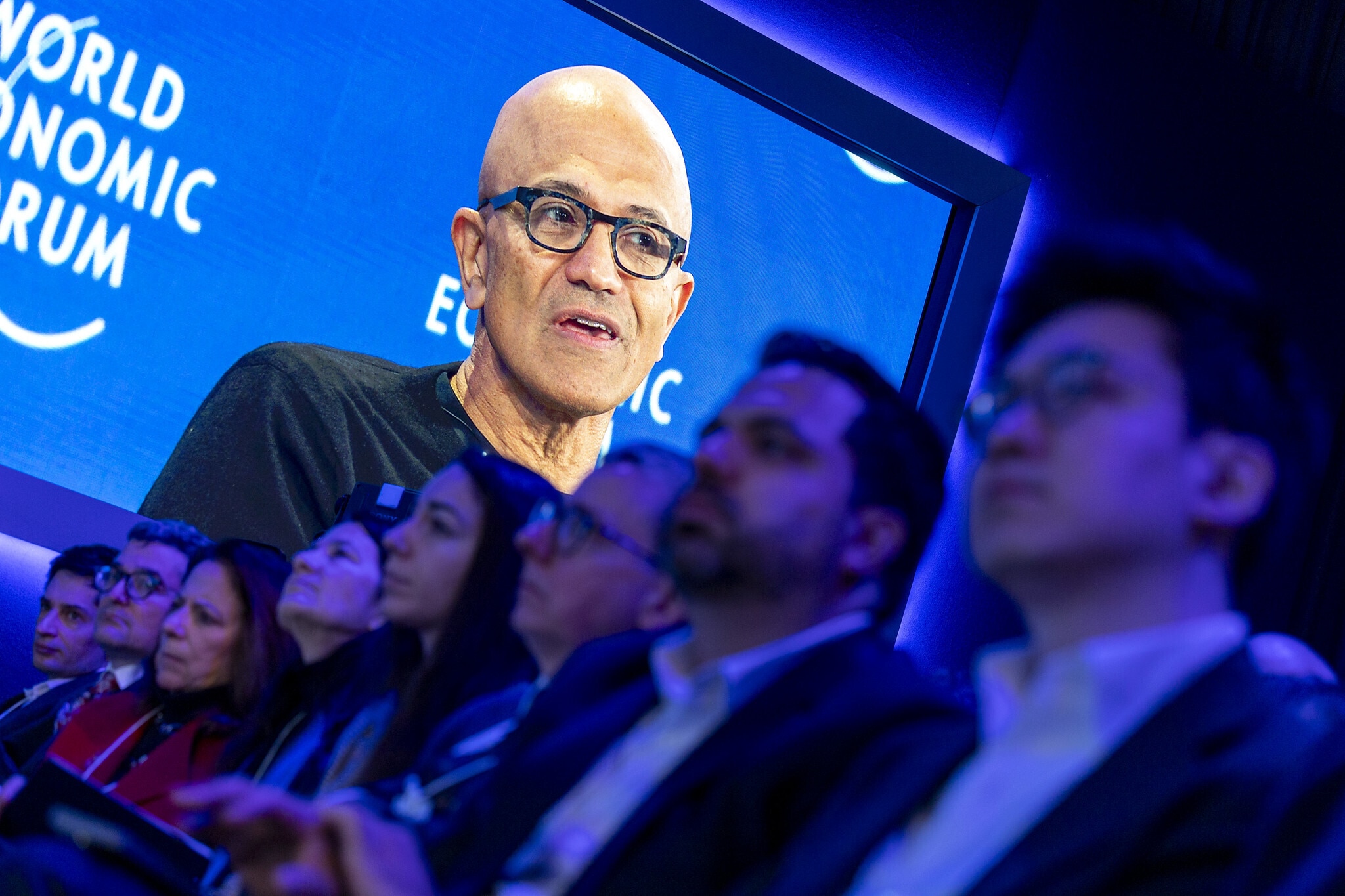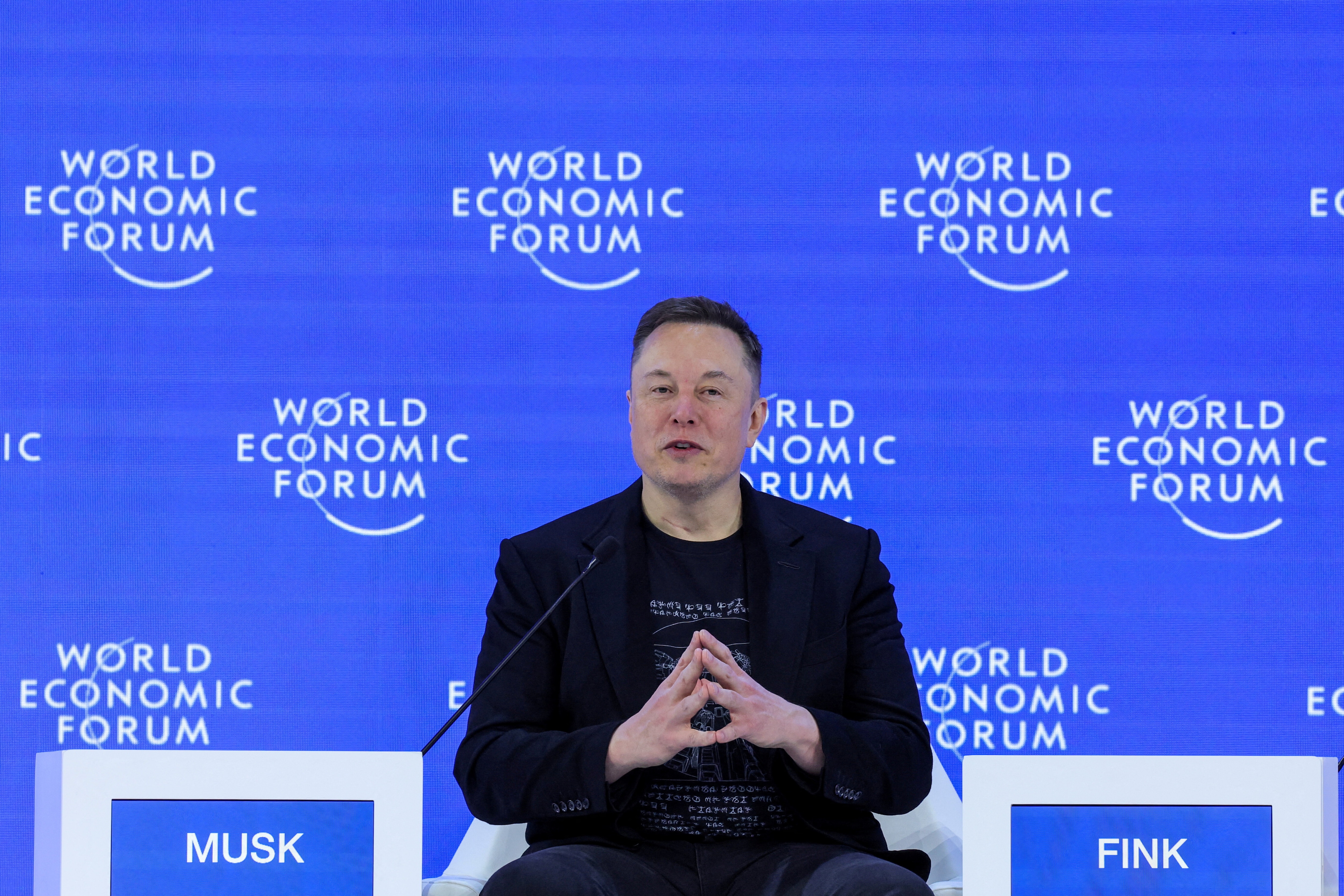How AI can enhance digital inclusion and fight inequality

AI can boost digital inclusion and drive growth. Image: Getty Images/iStockphoto
- Ensuring the digital economy remains accessible to all is vital in counterbalancing tech inequality.
- A 10% increase in broadband access raises GDP growth in developing nations by 1.4%.
- Properly managed AI can be a powerful stimulus for digital inclusion.
The stark reality of wealth disparity, where the richest 1% now holds more wealth than the bottom 95%, is not only alarming but also a trend that continues to accelerate. As we stand on the cusp of the transformative AI revolution, the words of World Economic Forum founder Klaus Schwab resonate deeply: “This is a societal revolution with the power to elevate or fracture humanity.”
AI and digital inclusion will emerge as critical instruments in counteracting the forces that perpetuate inequality. By broadening access to the digital realm, we can unlock pathways to increased productivity, foster innovation and generate new employment opportunities for a wider population.
For many of us, digital technologies are deeply entrenched in nearly all aspects of our lives, whether it is communication, work, shopping, learning or entertainment. But nearly 2.6 billion people, one-third of the global population, still lack internet access, leaving them without connectivity and unable to benefit from all of AI's advantages.
Digital technology must be a bridge, not a barrier, ensuring every voice is amplified and all communities empowered. AI holds the potential to solve many pressing problems for humanity, whether that be drug discovery in medicine, fraud detection in financial systems, crop monitoring in agriculture or self-driving vehicles. But such innovation cannot hide the deep ethical issues, societal risks and worsening inequalities associated with the technology.
An accessible digital economy
To effectively harness the synergistic potential of digital inclusion and AI, we must focus on building an accessible digital economy. Digital inclusion leads to increased productivity and innovation, as well as new job opportunities in the tech sector.
A digitally inclusive economy is a growth catalyst. World Bank data indicates that a 10% increase in broadband penetration can boost GDP growth rates by 1.4% in developing economies. Policies must prioritize universal access to digital infrastructure and affordable technology. World Bank research suggests that in digitized economies, an individual's likelihood of employment rises by up to 13.2%, while employment per company grows by as much as 22% and firm exports almost quadruple.
Digital inclusion isn’t merely about technology, but a fundamental human right that enables people to educate themselves and improve their lives and economic well-being. AI can be a powerful tool, breaking down barriers to learning and communication through real-time translation with chatbots and language accessibility.
Overcoming barriers to digital inclusion
Various obstacles can hinder the success of digital inclusion initiatives, including lack of broadband infrastructure, affordability constraints and insufficient digital skills. The latter are a prerequisite for staying connected, accessing information and being part of the global economy. The EU has set a target that at least 80% of the population should have basic digital skills by 2030. However, even in some advanced economies like Italy, only 45.8% of people possess basic digital skills, compared to the EU average of 55.5%.
To help rectify this, governments, corporates and non-profits can team up to create public infrastructure and connect people. For example, EDISON Alliance has connected over 1 billion people by onboarding more than 200 partners to create localized solutions, like mobile learning centres that bring tech to remote areas. The partnership has sparked learning, access and economic growth.

AI innovations through policy
AI growth is pervasive: McKinsey & Company reports the proportion of companies using it has increased from 20% in 2017 to 78% in 2025. AI development and infrastructure require massive training data, powerful chips or computers, and talent. Competition has intensified and is dominated by powerful tech companies. A few are threatening to monopolize the technology’s future, stifling access to computing power, data and the advanced models needed by startups.
Hence, governments stand to play a pivotal role in cultivating an environment where AI and digital entrepreneurship can flourish. Governments need to regulate and keep an eye on AI monopolies and facilitate platforms for startups. Innovation can flourish with supportive regulations, incentives and access to funding for small- to medium-sized businesses. Encouraging and investing in open source models, creating transparent AI models, and promoting interoperability across AI systems are measures that can create a level playing field for all.

Driving collective impact
AI can be a powerful means of bringing down barriers to learning, innovation and ushering in life-changing solutions in many sectors. Its implementation is therefore of pivotal importance: AI systems can either lead to widespread progress or widen inequalities.
This moment calls for collaborative efforts from policy-makers, businesses and global agencies in the following areas:
- Misuse: Preventing AI exploitation for harmful purposes that pose risks to individual safety and security, such as creating deepfakes, enabling large-scale fraud or supporting autonomous weapons.
- Accountability: Ownership and responsibility of AI must be watched carefully. Regulators need to hold people or companies accountable for any malicious activity and minimize risks for people and government.
- Transparency: Explainable AI, which allows users to understand why and how systems made a particular decision, should be encouraged and made a regulatory requirement for high-risk settings such as medical and defence data.
- Training data and models: AI systems often inherit biases based on skewed training data, such as gender and racial biases for hiring. If the data isn’t inclusive, the AI we build will never be representative.
- Data privacy and security: AI systems typically deal with vast datasets, often containing sensitive information. To protect this data, strong governance frameworks like GDPR are crucial to protect user data and interests.
- International cooperation: AI's impact transcends national boundaries; countries must establish and adopt common standards like the OECD’s AI policy observatory for best practices, mitigating risks and ensuring ethical development.
As AI rapidly integrates into our daily lives, forward-thinking policies to ensure responsible and inclusive development are more urgent than ever. AI should not become a tool in the hands of the privileged and powerful; its progress should open doors for all, weaving inclusion into the code of a connected world.
Don't miss any update on this topic
Create a free account and access your personalized content collection with our latest publications and analyses.
License and Republishing
World Economic Forum articles may be republished in accordance with the Creative Commons Attribution-NonCommercial-NoDerivatives 4.0 International Public License, and in accordance with our Terms of Use.
The views expressed in this article are those of the author alone and not the World Economic Forum.
Stay up to date:
Inequality
Related topics:
Forum Stories newsletter
Bringing you weekly curated insights and analysis on the global issues that matter.







